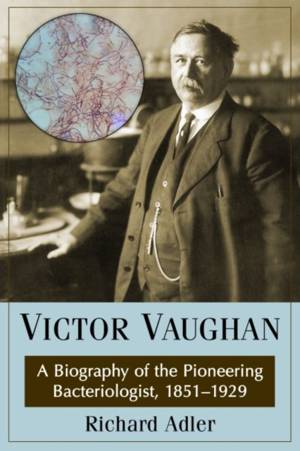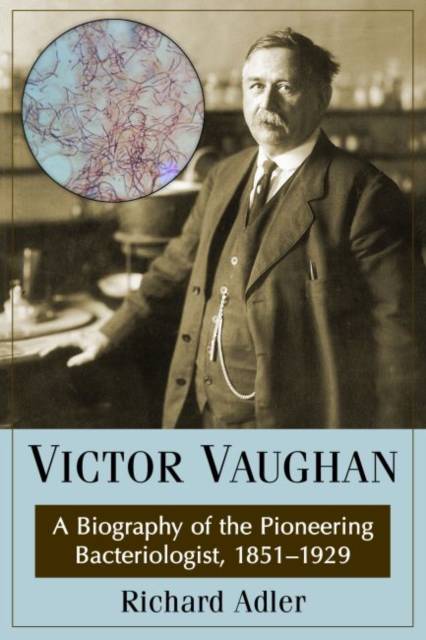
- Retrait gratuit dans votre magasin Club
- 7.000.000 titres dans notre catalogue
- Payer en toute sécurité
- Toujours un magasin près de chez vous
- Retrait gratuit dans votre magasin Club
- 7.000.000 titres dans notre catalogue
- Payer en toute sécurité
- Toujours un magasin près de chez vous
Victor Vaughan
A Biography of the Pioneering Bacteriologist, 1851-1929
Richard AdlerDescription
Victor Vaughan's career at the University of Michigan spanned more than four decades, beginning with his graduate studies in physiological chemistry during the 1870s and ending in 1921 with his retirement after three decades as dean of the medical school. Not only was he instrumental in modernizing medical training at Michigan, his work in areas of hygiene, epidemiology and the study of toxins and infectious disease was highly regarded on the national scene.
Twice he was called upon to serve his country in times of crisis. During the Spanish-American War he was a key member of the Typhoid Commission which investigated the outbreak of the life-threatening fever among army recruits in southern camps. During World War I, he was a member of the medical board within the Council of National Defense which contended with an unprecedented influenza outbreak.
Vaughan's professional work included more than 250 published papers and some 17 books, many outlining laboratory techniques that modernized the newly evolving field of bacteriology.
Spécifications
Parties prenantes
- Auteur(s) :
- Editeur:
Contenu
- Nombre de pages :
- 220
- Langue:
- Anglais
Caractéristiques
- EAN:
- 9780786495993
- Date de parution :
- 15-12-14
- Format:
- Livre broché
- Format numérique:
- Trade paperback (VS)
- Dimensions :
- 177 mm x 225 mm
- Poids :
- 303 g







